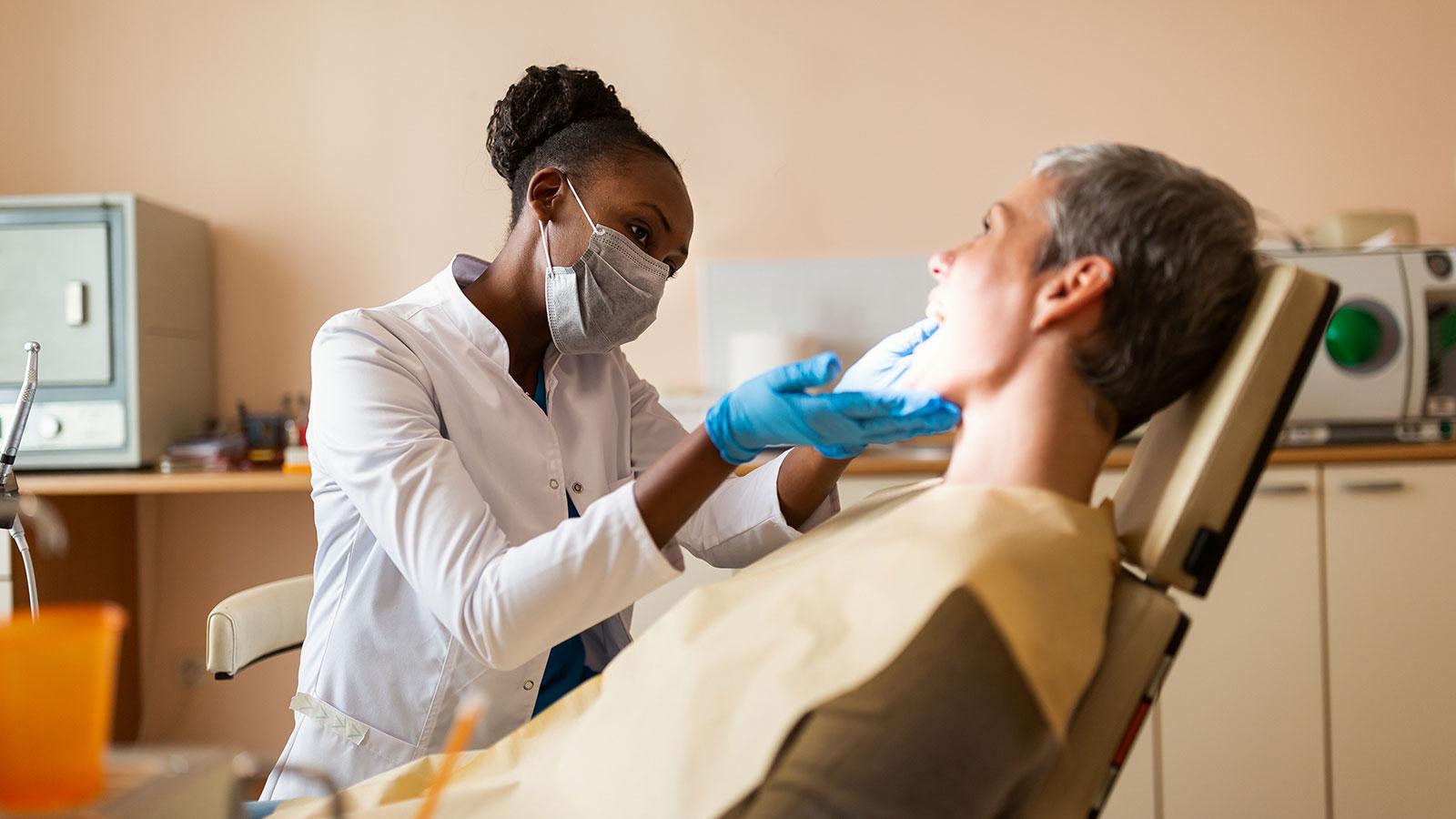How Much Can a Dental Cleaning Cost?
Why cleanings are essential, how much you should expect to pay, how you can save.

As you probably know, dental cleanings can improve your dental health and even protect your overall health. What you may not know — especially if it’s been a while since you or your family visited the dentist — is how much you should expect to pay for teeth cleaning in 2025. So take a minute to learn:
How much a routine dental cleaning may cost you with and without insurance
How much a deep cleaning may cost you with and without insurance
Why dental cleanings are essential
While brushing and flossing at home are an important part of an oral hygiene regimen, most dentists agree: Even if you are diligent about taking care of your teeth, you typically won’t be able to get your teeth and gums as clean as a professional dental cleaning.
Professional dental cleanings help reduce the bacteria, plaque and tartar that can cause tooth decay, gum disease, tooth loss and even serious systemic diseases. Essential for adults, cleanings may be even more important for children because pediatric dental disease can lead to decreased appetite, depression, low self-esteem, lower school attendance and compromised learning performance.1
Which is why the American Dental Association (ADA) recommends that most adults and children get routine cleanings (known as prophylaxis) twice a year, and that people with certain health conditions — including diabetes and heart disease — consider more frequent or more intensive cleanings.2
What does a routine teeth cleaning cost with and without dental insurance?
Dental Cleaning: Average Cost*
With dental insurance | Without dental insurance | |
|---|---|---|
Routine dental cleaning (prophylaxis) | No or low out-of-pocket cost depending on plan | $75-$200+ twice annually3 |
Deep dental cleaning (scaling and root planing) | Out of pocket cost depends on plan | Up to $1,000+ out of pocket cost6 |
*Costs may vary depending on your location and dental provider
You don’t need dental insurance to get a dental cleaning, but many insurance plans — cover the cost of preventive care such as dental x-rays, dental exams, and cleanings, so if you have coverage you may not have to pay any out of pocket costs. Compare that to the cost of a dental cleaning without insurance, which can be $75-$200 or more, depending on the type of cleaning that needs to be done.3
It’s important to note that cleanings done by a dentist may cost more than those done by a dental hygienist. Also, that cleanings done in large cities where demand is high are often more expensive than in other areas, as are cleanings in rural areas where there are few dental providers.
Whether you have dental insurance or not, please remember to inquire about the cost of your cleanings prior to having them done.
How much does a deep dental cleaning cost?
If you have certain medical conditions like diabetes4, have gum disease (known as gingivitis), or haven’t had a dental cleaning in a long time, you may need a deep dental cleaning (referred to by dentists as “scaling and root planing”).5
Deep dental cleanings are usually done by gum specialists known as periodontists, usually take two or more visits to complete, and are typically much more expensive than routine cleanings. In fact, a scaling and planing procedure could cost you more than $1,000 out of pocket6, depending on your location, your dentist, and your dental insurance coverage (Dental insurance may cover all costs of scaling and planing or just a portion of the cost, depending on your plan.)
How to save on dental cleanings
If you don’t have dental insurance, twice-yearly dental cleanings for you and your family can really add up. But, as discussed above, doing without them can have serious consequences in terms of dental and even systemic health. So you may want to find a more affordable route.
One idea is to negotiate costs with your provider prior to booking your appointments. You may be surprised at how flexible some dentists and hygienists are, especially if they are servicing multiple family members. Other options include contacting local dental schools and community health clinics — which often provide a range of dental services at reduced rates.
